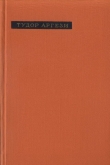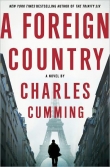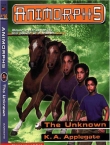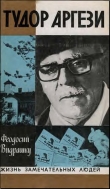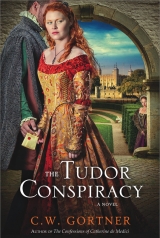
Текст книги "The Tudor Conspiracy"
Автор книги: Christopher Gortner
Жанр:
Исторические приключения
сообщить о нарушении
Текущая страница: 15 (всего у книги 19 страниц)
I felt sick. “You are mad. Heis mad. The very idea is monstrous. Elizabeth would never consent to him.”
“Oh,” replied Sybilla, with a lift of her chin, “she will, if she hopes to live. Her letter to Dudley confirms that she knew about the revolt.” Her voice darkened. “The game is over. Not even you can save her.”
I lunged forward, swiping my blade across the desk. I relished her swift inhale as she stepped back warily, her eyes on my sword. “Give it to me. Give me her letter.”
She did not flinch. “Why do you insist on fighting for what is already lost? That letter belongs to Philip now. He owns the knowledge that Elizabeth consented to treason in her own hand. When Wyatt and his men reach London, the queen will order her arrest. Renard will make sure Elizabeth is blamed for everything and see her locked in the Tower. The only one who can save her is the husband Mary desires so fervently she’ll do anything he asks, including spare her treacherous sister. Philip will be Elizabeth’s savior. And in time, Elizabeth will be his.”
“Not if I warn her first.” I raised my blade. She flattened herself against the wall. As she gazed at me, at last I gleaned in her face what I craved.
Fear.
A spasm went through me. I despised her with every part of my being, but the memory of my desire for her still clung to me like chains. She was a woman. I had never killed anyone. I knew her death was necessary if I was to save Elizabeth. The letter had to be hidden somewhere, awaiting Philip’s arrival. Sybilla would never entrust it to another. I might never find it, but if she was dead, neither would anyone else. I could gain Elizabeth valuable time before-
I hesitated too long. With a leap aside, she yanked a blade from within her sleeve and slashed it across my arm. Hot pain and a gush of blood broke my focus. I swerved away from her, flinging up my cloak to thwart her next stab.
Instead, she ran to the doorway.
I spun about. As I lunged toward her with my sword lifted, this time ready to cleave her in two, she kicked the side table holding the lantern. It fell onto the heap under the window and shattered. With terrifying suddenness, the piled rushes and rags burst into a flame, startling me and causing me to fling my hands up. She had doused the heap with tallow oil-that was the odor I had smelled and failed to identify.
“No!”I roared.
Sybilla slammed the door shut. I reached it in time to hear a key turn in the lock. I yanked at the latch, shouting at the top of my lungs, hammering with my sword hilt, oblivious to the spray of blood from my wounded arm.
Then I slowly turned back to the room. My heart capsized in my chest. The flames were leaping up the wall, feeding on the brittle pile and oil like a ravenous beast.
My eyes started to water. Forcing myself to stay calm, I moved as far as I could from the conflagration and scanned the room. There was no other way out except through that window. Sybilla had planned this; she had brought me here for this specific end.
I was going to die.
The smoke thickened, gusting up to the low ceiling like the clouds of an incoming storm. In seconds, it would fill the room and I’d suffocate. I’d lose consciousness; by the time the flames reached me, I wouldn’t feel it. When it was done, when the manor had collapsed in smoldering ruins, there’d be nothing left save my charred bones.
A howl struggled in my throat. I looked about desperately, and my gaze fell on the decanter and untouched goblet. I yanked up my hood, sheathed my sword, and tore my gauntlets from my belt. Grabbing the goblet, I poured ale over my trembling gloved hands. Then I soaked my hood and threw the empty decanter aside. It wasn’t enough; ten pitchers wouldn’t have been enough, but as I turned resolutely to the fire, I knew I had no choice. I could feel the heat through my clothes, as if the flames already licked my flesh …
Hunching my shoulders, I stepped forward. The ground shifted under my feet. I looked down. The floorboards … they were moving …
A dull roar filled my head. I coughed, lurching forward. It was the smoke. I was being strangled by it, deluded into seeing things that weren’t there. If I could just push through that writhing screen of flame to grab hold of the window latch-
I didn’t think I was moving to my death or hear the section of floor creaking open behind me until rough hands grabbed hold of me, pulling me back, yanking me down into a hole. Only then did I realize the piercing sound in my ears was my own scream.
“Get moving, before it all comes down on top of us,” an urgent voice said. I dragged myself after the hulking figure who’d rescued me, my smoke-singed nostrils detecting a faint trace of wet earth. I was in a tunnel under the manor, a secret escape passage. Slimy water sloshed underfoot; it was so dark I couldn’t see anything. Gradually it began to lighten. A hatch above me was thrown back and I was again yanked, coughing and sputtering, into the garden. I lay on my back, gasping for air. In the distance, I glimpsed the river, shimmering like a dragon’s tail in the sullen dawn.
The barge was gone.
I looked up into Scarcliff’s twisted visage. “You’re lucky I saw my horse bucking at his tether,” he said, wrapping his cloak about me. It was soaking wet, foul with river-stink. “A little more time and you’d be roast meat.”
“How-how did you know?” My voice was faint, hoarse.
“I told you. I saw poor Cerberus fit to slip his bridle and all that smoke-”
“No. The passageway. You knew it was there. You’ve been here before.”
He went still. Then he said softly, “Don’t you recognize me, lad?” and I felt as if I’d plunged into an endless void, falling and falling without reaching bottom.
“Shelton,” I whispered. I couldn’t believe I hadn’t seen it until now.
It was there, beneath his ravaged face-the traces of the man I had known, the stern Dudley steward who had helped raise me and had brought me to court. As I met his one eye in recognition, I was swept back to that horrible night in the Tower when I’d pursued him. He’d been trapped in the crush at the portcullis. All those terrified souls, trying to escape the guards coming down on them with halberds and maces-skulls must have been cracked, limbs shattered, bodies scythed like chaff. Someone must have struck him, slashed his face to the bone. The wedged soles on his boots-his legs had been damaged, too. Yet somehow, he’d survived. He had dragged himself to safety and changed his name, his identity. He’d melted into London’s underbelly, hired himself out as a strong-arm for the earl. He must have known who I was the moment he saw me, but he had not breathed a word. Had he intended to stay hidden from me forever, to take his secret with him to his grave? If so, he had betrayed himself to save me.
“I know I owe you an explanation,” he said roughly, “but this isn’t the place. If you want to catch that she-wolf, we’d best get moving. I’ve been tracking her since the ambush on the road. I didn’t dare engage her”-he grimaced-“I’m not the man I was. But I saw her take the barge toward the bridge. The current isn’t strong, however. You still have time.”
I struggled to get up, to get away. He tightened his grip on me. “We need to bind that wound.” He tore a strip from the bottom of his chemise and tied it around my arm, stanching the blood. “It’s not deep. It’ll need curing, but that should suffice for now.”
He let me go. I clambered to my feet, the taste of embers in my mouth. Looking past him to the manor, I saw smoke billowing from the rooftop, an eerie nectarine glow smearing the windows. The fire was spreading. It would consume the entire house.
We trudged into the river, the water coming to our waists as we waded out far enough to bypass the garden wall. Scarcliff had moved the horses away from the manor. As he helped me onto my saddle, Cinnabar pranced sideways, agitated by the scent of fire. My world shrank for a moment. What was I doing? How did I think I was I going to stop Sybilla with a wounded arm and the help of a man I’d believed was dead and barely trusted?
We bolted toward the city.
It was that preternatural hour before morning, when everything is softened by the waning of the night. The city was just awakening, grumbling goodwives still sweeping their doorsteps of refuse as peddlers and hawkers embarked on the trudge to the marketplace at Cheapside with their wares, and pigs and dogs rooted in the conduits for leavings.
We galloped past them, scarcely registering their presence.
There was still time, I kept telling myself. Still time …
The massive gateway leading to the bridge reared into view. Officials in cloaks clustered before it as liveried sentries and armored soldiers roamed the perimeter. People were lining up, herding livestock. I registered a cacophony that must be loud, though to me it sounded less intrusive than my heart’s pounding in my ears.
Still time …
I slid off Cinnabar. “Too many people, and on horseback we’re too visible.”
He gave a grim nod. “I’ll follow you. Be careful.”
As I moved on foot to the gate, leading Cinnabar by the reins, I searched the crowd. Given the hour, most of those waiting to cross the bridge were tradesmen, but as I stepped into the line I suddenly spotted her near the front of the queue, swathed in a cape and with a cap pulled low on her head. She held a gelding by its bridle, the horse stamping nervously as it was jostled by those around it. She must have docked the barge and hired a horse. Under the bandage, my arm throbbed as I lowered my hand to my scabbard. The sentry waved her onward. She mounted and began to steer her horse through the crowd. She couldn’t ride fast; once she was at a safe distance, I hauled myself onto Cinnabar, dodging the multitude of animals, carts, and wagons on the bridge, intent on not losing her.
She wasn’t in a rush, nor did she appear to show concern that she might be followed. I saw her crack her whip, opening passage. I wondered where she was headed; wherever it was, she clearly wasn’t returning to Whitehall. I glanced over my shoulder. To my relief, Scarcliff was a short distance away; he had left Cerberus in the stalls by the bridge, where grooms minded horses for a fee.
Sybilla abruptly reined to a halt outside a haberdashery. I slid from Cinnabar, watching her dismount through the ebb and flow of the bridge’s denizens. She looped her horse’s reins to a post and went to a door beside the shop, unlocking it. She disappeared inside. I lifted my gaze. The building was like all those cluttering the bridge-squeezed tight between its neighbors, precariously tall, its overhanging balconies festooned with sodden laundry, its peeling exterior pockmarked by small, thick-paned windows.
My blood quickened.
It must be a safe house. She had stashed the letter here. She had come for it.
Scarcliff neared. I motioned for him to see to Cinnabar and crossed the road. The haberdashery wasn’t open; the building looming above me was quiet, even as the sounds of traffic on the bridge rumbled around me.
As at the manor, she had left the door unlocked. It put me on alert; cracking the door ajar, I found an empty parlor and a narrow staircase leading upward into gloom. I heard nothing as I took the stairs, wincing at every creak, knowing she was somewhere above me, perhaps already aware and ready for attack. That she’d shown no awareness of being followed was no solace. I’d underestimated her before. This time, I had to fight to the death.
Stepping onto the landing of the first story, I eased out my sword. There was movement in the room before me. Edging closer, reaching out with my free hand, I threw the door open and braced myself. I glimpsed a cot in a corner, a desk, and a stool; then, from the corner, she came to her feet swiftly, revealing an upended floorboard. Her expression faltered; she looked almost disconcerted to see me. My gaze riveted itself to that dislodged floorboard, seconds before she lunged at me with her sword in hand.
I ducked away, thrusting my blade. She pranced aside. “You should have let the fire take you,” she said through her teeth. “I trained for years with a master in Toledo. After I kill you, I’ll take your blade to him so he can see how far the steel of Spain has traveled.”
I did not respond, saving my strength, concentrating on parrying her strikes and maneuvering her away from that upended board. My arm was aching; I could feel fresh blood welling through the makeshift bandage, but my rage was stronger, all-consuming, so that she was all I saw, all I felt and wanted. My doubt vanished; my sword seemed to anticipate my every move, and her expression hardened when I avoided one of her strikes and grazed her side with my blade, drawing blood and forcing her to pivot away from me to evade a deeper wound. She understood what I was trying to do, and she came at me with demonic fervor, lashing her sword, pushing me out of the room and toward the staircase, where she no doubt intended to put an end to me.
Our blades clashed with a merciless ring. Teetering on the edge of the stairs, I knew I had only moments before she broke through my defenses. I did not think, then; did not hesitate. I whirled about and leapt down the stairs, three at a time. As I hoped, like a wolf with its blood up, intent on fleeing prey, she came after me.
All of a sudden we were in the street, pitched in fierce battle, as passersby scrambled to avoid us. She moved so fast she was like quicksilver, her hair uncoiling from the knot at her nape to stream about her flushed features, so that even then, in that terrible moment as I fought for my very life, she was as beautiful as an avenging angel-and as cruel.
She failed to see Scarcliff. He had shifted Cinnabar to the other side of the street, a few doorways from the house, and hidden in the crowd. He suddenly barreled out toward her, his massive body poised like a ram. As he slammed into her with audible impact, she lost her footing on the uneven paving. Her blade flew from her hand. It was the opening I needed. As she whipped around to Scarcliff, snarling and jerking a knife from her boot, I ran at her with my sword brandished, determined to take her head. I missed by a hair’s breadth, the very air quivering as she crouched and reeled away. For an instant that seemed to last an eternity, our eyes met. I was blocking her return to the house.
Her mouth curved in an icy smile.
She turned and began to run.
“Upstairs!” I yelled at Scarcliff as I bolted after her. “Under the floorboard!”
The congestion on the bridge had thickened; it was nearing midmorning, and hundreds of people were going about their business. She swerved to and fro, dodging shouting carters and angry mercers, her knife clutched in her hand, though it was no match for my sword and she knew it. She was heading for the southern gate; if she managed to escape the bridge and make it into the warren of Bankside, I’d be forced to hunt her down.
Chances were, she’d get me first.
Neither of us anticipated the additional sentries posted at the other end, a precautionary move prompted, no doubt, by Courtenay’s arrest. As the hulking gateway with its massive barbican and spiked crown of rotting heads came into view, Sybilla’s pace flagged. Everyone coming from London, be he a tinker with a shoulder pole or a fur-clad lady in a litter, was being stopped and questioned before they were permitted to pass. I heard snatches of agitated clamor from people standing nearby-“Rebels from Kent, they say, an army of traitors!”-and Sybilla spun around, knowing that those sentries would question her, that perhaps Renard had provided a description of her.
She came to a panting halt, facing me. Every sound and sight about me faded. Even as I started to rush to her, shouting, she leaped up onto a low parapet on the edge of the bridge-one of those rare openings between buildings that gave out onto the river and offered a stunning view of the city’s breadth. She perched on that parapet like a gorgeous bird of prey, the wind catching at her cloak, silhouetting her slender figure, the cluttered spires of London erupting into gold as the sun emerged from its bed of mist.
“No,” I heard myself whisper. I dropped my sword at my feet.
She cocked her head, as if disappointed. Then, to my disbelief and a communal gasp of horror from those watching, she flung out her arms and plunged off the parapet.
In the ensuing silence, something inside me cracked in two. A scream came from a woman nearby, piercing the hush, and then everyone was rushing to the parapet in a gaggle of morbid curiosity, peering down to the ice-clogged river far below.
I stood immobile. Then I picked up my sword and walked away.
Scarcliff was waiting by the house with Cinnabar. He reached into his jerkin, extending the leather cylinder containing Elizabeth’s letter to me. He had Sybilla’s sword in his other hand. “It’s an expensive piece,” he said, “worth saving.”
“Keep it.” I tucked the cylinder into my jerkin. “I have what I came for.” I sheathed my own sword, taking Cinnabar’s reins. We rode quietly back to the north gate. Scarcliff went to fetch Cerberus. As I waited for his return I noticed that the number of guards and officials near the gatehouse had increased; when I saw Rochester among them, his rotund person quivering as he spoke with the sentries, I called out, “My lord!”
He turned around, startled, and bustled over to me.
“What is it?” I asked. “What is happening?”
He glanced over his shoulder at the staring officials. “Word came before dawn of an army coming toward us from Kent. Scouts have been sent to verify. We await their report.”
“But the queen’s betrothal,” I said, “it hasn’t been announced…” Even as I spoke, I cursed my own blindness. I should have realized this, too, was part of Dudley’s plan. He’d led Courtenay to believe the betrothal would be the sign, but it wasn’t. Surprise attack: It was the only chance to catch the queen, and London, unprepared.
Rochester looked perplexed. “The official announcement will be made at Hampton Court, if you must know, though such matters have a way of leaking out. The earl is in the Tower; he was questioned at length and gave us names. Warrants are being issued for the other conspirators, though most, if not all, must have heard by now of the earl’s arrest. If they’re wise, they’ll be fleeing the country as we speak.” His voice lowered. “The earl did not mention the princess. He insisted over and over that she knew nothing.”
I exhaled in relief. Despicable as he was, at least Courtenay had retained one last shred of honor. “You mustn’t wait for the scouts,” I told Rochester. “The uprising is real; it’s being led by Wyatt of Kent. Those letters I delivered were only half the story. Wyatt plans to join with Suffolk’s retainers. Whatever she does, Her Majesty mustn’t tarry.” I paused, seeing him turn pale. “Tell her for me. Tell her I did as she bade and uncovered this last detail of the conspiracy. But I must take my leave. Thank you, my lord, for everything you’ve done, for me and Her Grace. Your kindness won’t be forgotten.”
He flinched. “You must go to her,” he whispered, “before they do. If this is true, if there is a rebellion upon us, I fear she’ll have even greater need of you than ever before.”
“I will do what I can,” I said. “I promise.”
ASHRIDGE
Chapter Twenty
At Bishopsgate, Scarcliff drew to a halt. “This is as far as I go.”
“What?” I stared at him. “You can’t stay here. I have questions only you-”
He cut me off with a sigh. “I know. I owe you answers, but it will have to wait. London is my home; these thieves and whores and beggars, dregs no one ever gives a second thought to-they helped me when no one else would. If there’s to be fighting in the streets, I must be here. Besides,” he added, “there’s my dog. I’m not leaving him.”
I almost laughed. “The steward I knew never cared much for anything save duty.”
“A dog can change a man.” He turned somber. “Go now. Warn your princess. I will find you. Or if you return to the city first, come find me. If I’m still alive, I’ll be at the Griffin. See that you cure that arm. You don’t want to end up maimed, like me.”
Without another word, he turned his horse about and rode back into the city.
I watched him vanish, wondering if I’d see him again. I wanted to call him back, to demand a full accounting of his actions, the reason he’d assisted me and the reason he had vanished, all those months ago. No, he was right: It must wait. He had his path to follow, and I had mine. For now, they led in opposite directions.
I rode resolutely out of London.
* * *
It was a long ride, through a bleak landscape I barely registered, so weary I could have slept upright on my horse, though I did not.
In my mind, I kept seeing Sybilla balanced on that parapet, the curious look on her face before she soared to her death. I remembered her radiant smile, her breathtaking beauty, when she’d first approached me in the queen’s chamber; her walk with me in the gallery and her solicitude when Peregrine died, and our searing, urgent communion in the darkness of my room.
Even now, knowing she was gone, knowing I needn’t ever confess my transgression to Kate, my feelings were disturbing. Sybilla had deceived and manipulated everyone around her, connived to destroy everything I cared about. Peregrine was dead because of her; I should rejoice in her end, knowing her master, Philip of Spain, had nothing to wield against Elizabeth when he arrived. Without the letter, he’d be even more ardent in her defense, for only by saving her could he hope to earn her gratitude.
Yet as I rode through intermittent snow flurries, my head tucked to my chest as Cinnabar moved purposefully forward, I couldn’t deny that despite everything she had done, despite the fact that never had I met another woman like her, and prayed I might never again, Sybilla had transformed me. She had roused something in me-a near-feral recognition of my own self.
You do not owe me anything.
She was mistaken. I owed her the knowledge that I understood. Like her, I had known the desperation of a fractured childhood, the helplessness of being prey to the callous whims of others. I, too, had burned with the fervent desire to prove my worth. She was my reflection, the dark twin of my soul. Only what I had sought to vanquish, to capture and tame by serving Elizabeth, she had embraced, honed to a lethal edge like the very blade she had brandished.
She was the person I might have been, had my fate not taken a different turn.
* * *
I reached Ashridge by nightfall.
Newly fallen snow draped over the Hertfordshire countryside. As I clattered into the courtyard, a groom came running out to assist me. I unhooked my saddlebag and dragged myself into the manor.
Mistress Parry greeted me from the torch-lit hall with a frightened gasp. “Sweet mercy, look at you!” Only then did I realize how I must present, covered in mud and mire from the road and crawling through gaps in stone walls and tunnels; my cloak bedraggled, my tunic torn, my arm blood-caked and my entire person stinking of sweat and horse.
“It’s been a long day,” I said, removing the cylinder with Elizabeth’s letter and divesting myself of cloak and scabbard. She took them from me. “Where is Her Grace?”
“She’s gone to her chamber to rest.” Mistress Parry’s voice quavered as she eyed the cylinder in my hand. “What is the news from London? Is she … are we still in danger?”
“I fear so. I’ve done all I can. But we should prepare; it is likely the queen will send men to question her. I must talk with her first.”
She clutched my belongings as I turned to the staircase. “Should I send to Hatfield for Mistress Ashley and Mistress Stafford?” she suddenly asked.
I froze. Then I nodded. “Yes,” I said, “I think you should.” I continued up the stairs.
When Kate arrived, I would tell her everything.
* * *
The princess’s bedchamber door was ajar; I knocked to announce my presence and entered. The room was small, wainscoted in linen-fold paneling and warmed by a fire burning in a recessed hearth. Strewn about were her open coffers and traveling chests. From what I could see, she’d unpacked her books and a few scattered articles of clothing.
She looked up. She was sitting on the edge of her bed, a lit candle by her side, an open book in her lap. Her hair hung loose over her shoulders, a red-gold sheen blending with the scarlet of her robe. She looked so young, so vulnerable, without the accoutrements of her court regalia: a mere girl. Not a princess at all.
A knot filled my throat.
I extended the cylinder I’d carried close to my heart the entire ride.
“You are a man of your word,” she said. She set it unopened on the table next to her candle. “Is it done?”
“No. But there is no evidence against you.”
She did not reach for the cylinder, did not react in any way as though she were interested in its contents, as I relayed what I had found out, about Sybilla and Philip of Spain and their plot to hold her hostage to the prince. She did not interrupt or ask a single question. She sat so still when I was done that she might have turned to stone, had it not been for the rapid rise and fall of her breast.
“I had no idea he considered me such a prize,” she said at length. “I find cold comfort, considering it’ll be yet another reason for Mary to despise me.”
“She doesn’t know-” I began, and the room keeled around me. My knees gave way; I almost fell as I reached for the nearest chair.
“You are wounded,” said Elizabeth. “You must sit.”
As I sank onto the chair, weak as a newborn foal, she went to one of her chests and extracted a painted casket. She pointed at my arm. “Let me see.”
I shook my head. “It’s nothing. There is no need-”
“Don’t argue. Take off your doublet and shirt and let me see. If it festers, Kate will never let me hear the end of it.” She opened the casket as I reluctantly shed my upper clothing. When I looked at her, she had set out a jar of salve and folded linen cloths. Taking up the pitcher of water from her sideboard, she bent over me and cleaned my wound. With the crust and dried blood washed away, I saw it was deep but not large.
Her fingertips felt cool as she probed the ragged skin. I winced.
“You’re like a bear after a baiting,” she said. “Stay still. This might sting. It is Kate’s special salve; she made a batch for me before I left Hatfield. I always carry it with me.”
Taken aback by her determination, I let her salve the wound with the rosemary and mint concoction, releasing the very aroma of Kate into the air. She worked efficiently, without revulsion. I’d forgotten that she had lived most of her life far from court, in a country setting where even princesses must learn rudimentary healing skills. The salve eased my pain, inducing a welcome numbness. I reached for my chemise immediately after, my breeches sagging perilously low on my hips.
“There. Better, yes?” She returned the items to the casket. “You should use the salve at least once a day, twice if you can manage it.” She scrutinized my face. “That other wound on your temple should be tended, too. No matter what most physicians say, even such minor hurts can gather dirt. If corruption sets in, you will sicken.”
She spoke matter-of-factly, as if I had not informed her that a revolt could at this very moment be upon London and that she was far from safe-indeed, that all of us were in danger.
“What are we going to do?” I finally asked.
“What can we do? We wait.” She paced to the side table, her long fingers hovering over the cylinder. “Whether Wyatt succeeds or fails; whether my sister chooses to believe in my guilt or innocence; whether I’m left alone or taken-only time can tell now.” She glanced at me. “Though if the situation is as dire as you say, I should think that we’ll have our answer sooner rather than later.”
She picked up the cylinder.
“What does that letter say?” Though I had told myself that I would not ask, I couldn’t stop myself. All of a sudden, I had to know exactly what I had sacrificed so much for.
She paused. Cylinder in hand, she moved past me to stand for a long moment before the hearth. She pulled back the grate; with a flick of her wrist, she tossed the cylinder into the fire. “I told you at court, you had one chance. Now, it is best if you do not know more than you already do. You’ve suffered enough for my sake.”
Her rebuke did not surprise me. It had been presumptuous to assume she’d deign to confidence now. Her words to Robert Dudley would remain a secret between them, the evidence even now curling to ash in her hearth.
“Will you eat?” she asked. “You must be famished.”
Holding on to the chair, I hauled myself to my feet. “No, I just want to sleep.”
“Go, then. Mistress Parry will see to your chamber. We’ve hardly a full house here; there are several rooms to choose from.” She remained at the hearth, the firelight limning her figure in a reddish glow. As I moved to the door, I felt her gaze follow me. My hand was on the latch when my question came out, unbidden. “Will you allow me one thing?”
She nodded. “If I can.”
“Was it worth it?”
She sighed. “I have found it’s always worth fighting for what we believe in, regardless of the outcome. Risk is never without consequence.”
I inclined my head.
“And you?” she asked. “Would you have fought for me as you did, had you known the entire truth?”
I hesitated for only a moment. “Yes,” I said. “No matter what you have done, I believe in your cause.”
She gave me a dry smile. “I’d expect nothing less. Rest, my friend. You’ve earned it.”
* * *
I feared that I might not be able to sleep, that the events of the past days would haunt me in the silence of unfamiliar quarters. In fact, as soon as I disrobed and climbed into the musty bed, I fell fast asleep, without dreams, for the first time since I had left Hatfield.
When I awoke, it was past midday. I could tell by the angle of light filtering through the window. Mistress Parry had sent someone up while I rested, who’d seen to my needs. Along with a fresh shirt, my breeches and hose were folded in a neat pile by my saddlebag, crinkled and stiff from having dried by a fire but blessedly clean and scented with lavender. After I washed and tended to my arm, I went to the hall. In the daylight, Ashridge was visibly as well appointed as the manor at Hatfield; it had the requisite furnishings and size, but the feel of disuse hung in the air, as in all places that are rarely inhabited.

